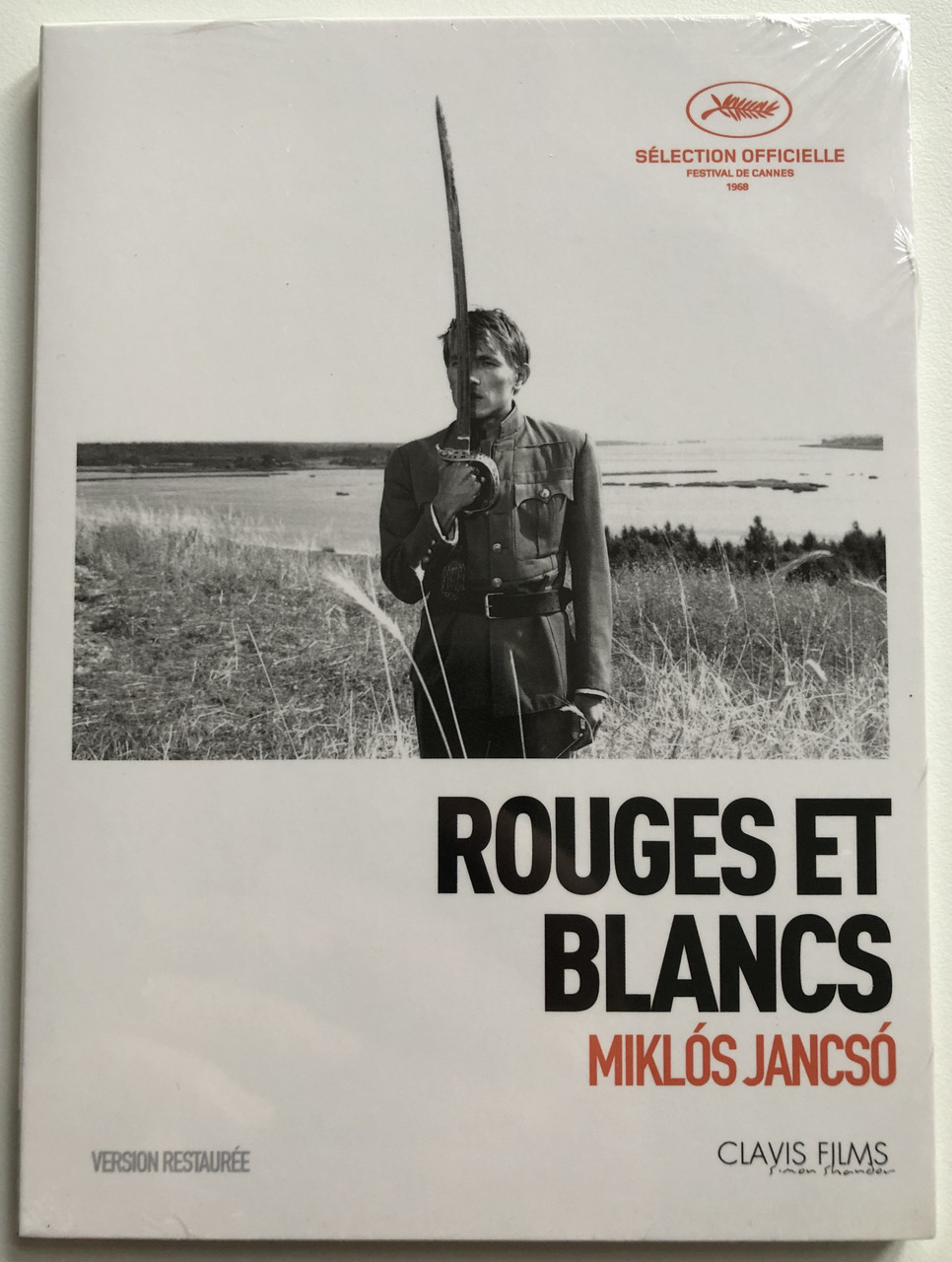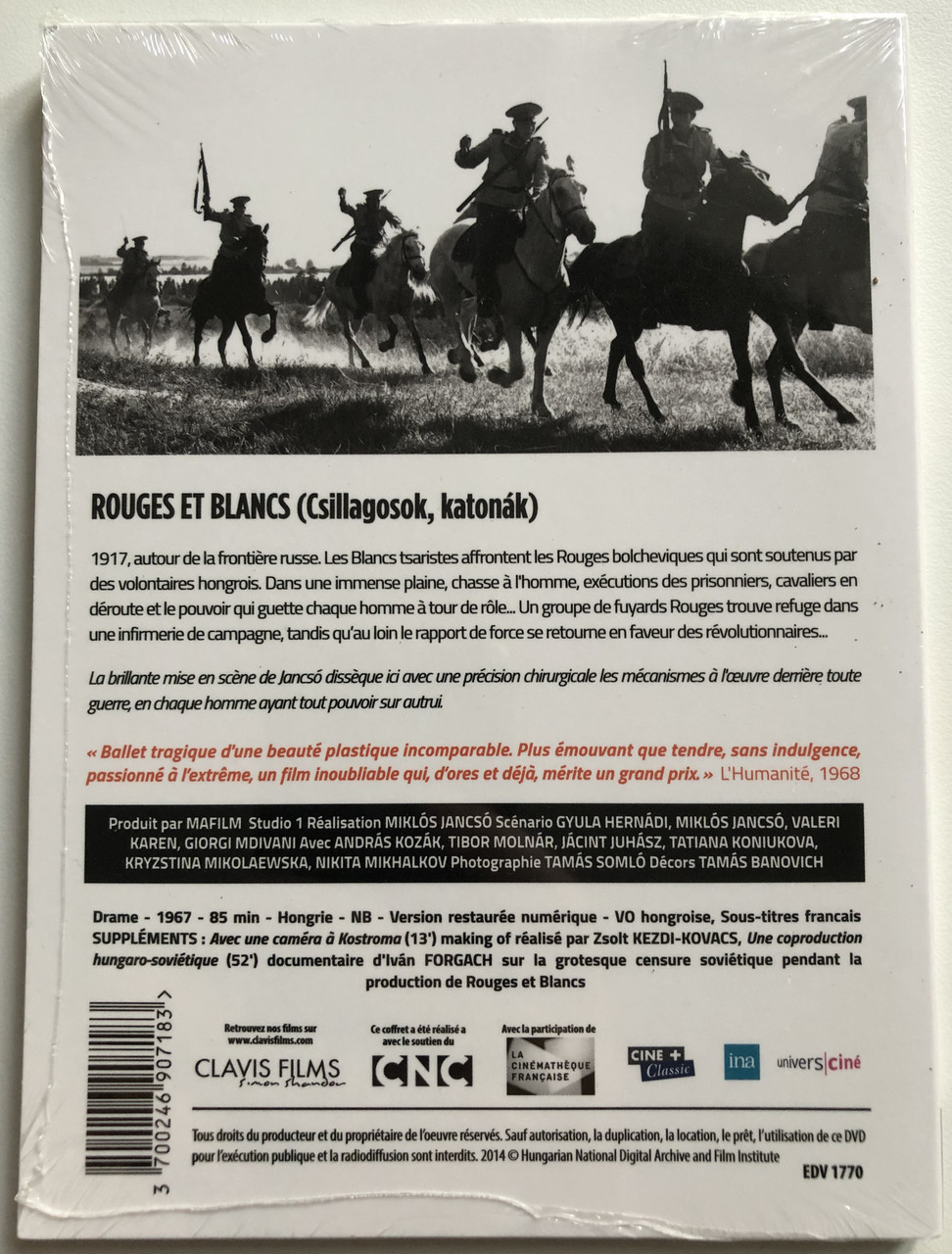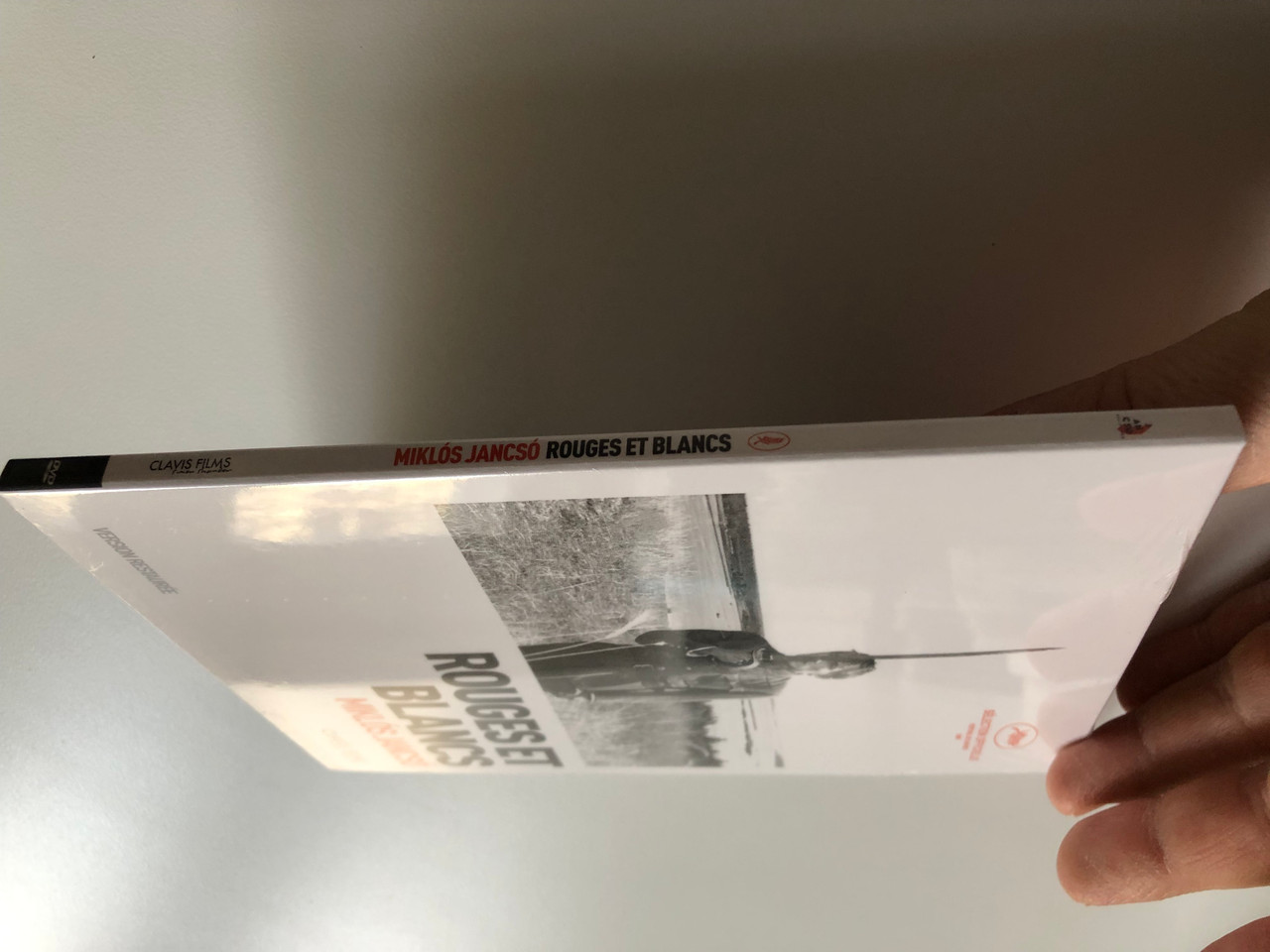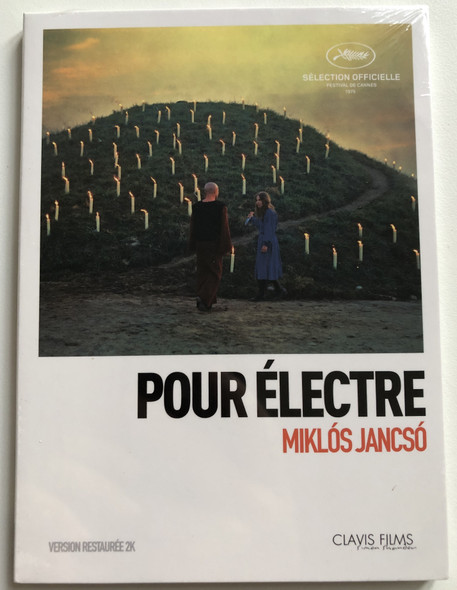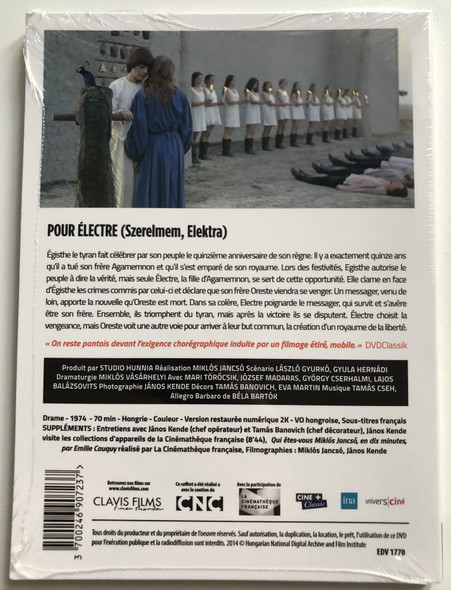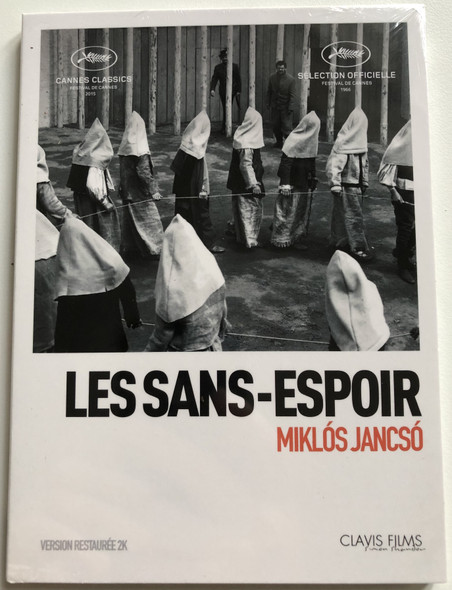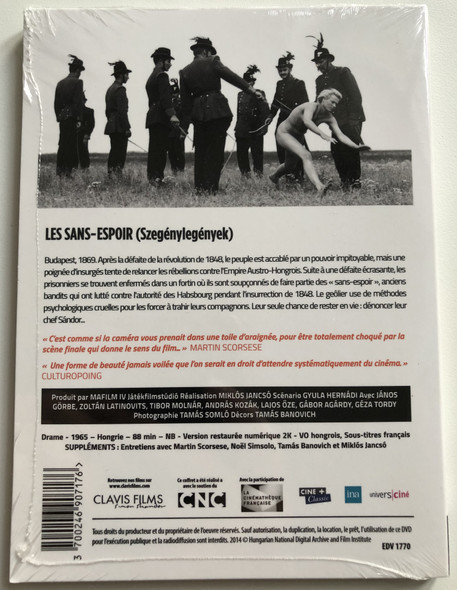Description
Csillagosok, katonák / ROUGES ET BLANCS - MIKLÓS JANCSÓ / VERSION RESTAURÉE / SÉLECTION OFFICIELLE FESTIVAL DE CANNES 1968 / CLAVIS FILMS Simon shander
UPC 3700246907183
Region 2 PAL DVD
Made in France
Audio: Hungarian
Subtitle: French
ROUGES ET BLANCS (Csillagosok, katonák)
1917, autour de la frontière russe. Les Blancs tsaristes affrontent les Rouges bolcheviques qui sont soutenus par des volontaires hongrois. Dans une immense plaine, chasse à l'homme, exécutions des prisonniers, cavaliers en déroute et le pouvoir qui guette chaque homme à tour de rôle... Un groupe de fuyards Rouges trouve refuge dans une infirmerie de campagne, tandis qu'au loin le rapport de force se retourne en faveur des révolutionnaires...
La brillante mise en scène de Jancsó dissèque ici avec une précision chirurgicale les mécanismes à l'œuvre derrière toute guerre, en chaque homme ayant tout pouvoir sur autrui
<< Ballet tragique d'une beauté plastique incomparable. Plus émouvant que tendre, sans indulgence,
passionné à l'extrême, un film inoubliable qui, d'ores et déjà, mérite un grand prix. » L'Humanité, 1968
Produit par MAFILM Studio 1 Réalisation MIKLÓS JANCSÓ Scénario GYULA HERNÁDI, MIKLÓS JANCSÓ, VALERI KAREN, GIORGI MDIVANI Avec ANDRÁS KOZÁK, TIBOR MOLNÁR, JÁCINT JUHÁSZ, TATIANA KONIUKOVA, KRYZSTINA MIKOLAEWSKA, NIKITA MIKHALKOV Photographie TAMÁS SOMLÓ Décors TAMÁS BANOVICH
Drame - 1967 - 85 min - Hongrie - NB - Version restaurée numérique - VO hongroise, Sous-titres francais
SUPPLÉMENTS: Avec une caméra à Kostroma (13') making of réalisé par Zsolt KEZDI-KOVACS, Une coproduction hungaro-soviétique (52') documentaire d'iván FORGACH sur la grotesque censure soviétique pendant la production de Rouges et Blancs
The Red and the White (Hungarian: Csillagosok, katonák) is a 1967 drama film directed by Miklós Jancsó and dealing with the Russian Civil War. The original Hungarian title, Csillagosok, katonák, can be translated as "Stars on their Caps" (literally "Stars, soldiers"), which, as with a number of Jancsó film titles, is a quote from a song. The film was listed to compete at the 1968 Cannes Film Festival, but the festival was canceled due to the events of May 1968 in France. It was voted as "Best Foreign Film of 1969" by the French Syndicate of Cinema Critics.
The film, a Soviet-Hungarian co-production, was originally commissioned to celebrate the 50th anniversary of the October Revolution in Russia in which the Bolsheviks seized power. However, Jancsó chose to set the action two years later in 1919 and showed Hungarian irregulars supporting the Communist "Reds" in fighting the Tsarist "Whites" as the two sides battled for control in the hills overlooking the Volga river. As well as deviating on the required setting, Jancsó also chose to use a radically different approach to the film than that expected. Rather than shooting a hagiographic account of the birth of Soviet Communism, Jancsó produced a profoundly anti-heroic film that depicts the senseless brutality of the Russian Civil War specifically and all armed combat in general.
The film tells the story of the Hungarian branch of the soldiers who, during World War I ended up in Russian captivity. When the revolution breaks out and begins a civil war in Russia, the soldiers are on the side of the Bolsheviks. Some are hoping that this will make it easier to come home. Others feed on sympathy for the ideology of communism. Some have to fight with an army of White Guards, who tend to be very cruel.
Cast
- József Madaras – Hungarian Commander
- Tibor Molnár – Andras
- András Kozák – Laszlo
- Jácint Juhász – Istvan
- Anatoli Yabbarov – Captain Chelpanov
- Sergei Nikonenko – Cossack Officer
- Mikhail Kozakov – Nestor
- Bolot Bejshenaliyev – Chingiz
- Tatyana Konyukhova – Yelizaveta the Matron (as Tatiana Koniukova)
- Krystyna Mikołajewska – Olga
- Viktor Avdyushko – Sailor
- Gleb Strizhenov – Colonel
- Nikita Mikhalkov – White Officer Glazunov
Savely Kramarov also makes an appearance as White Cossack Savva who has a task to execute one of the prisoners of war.






